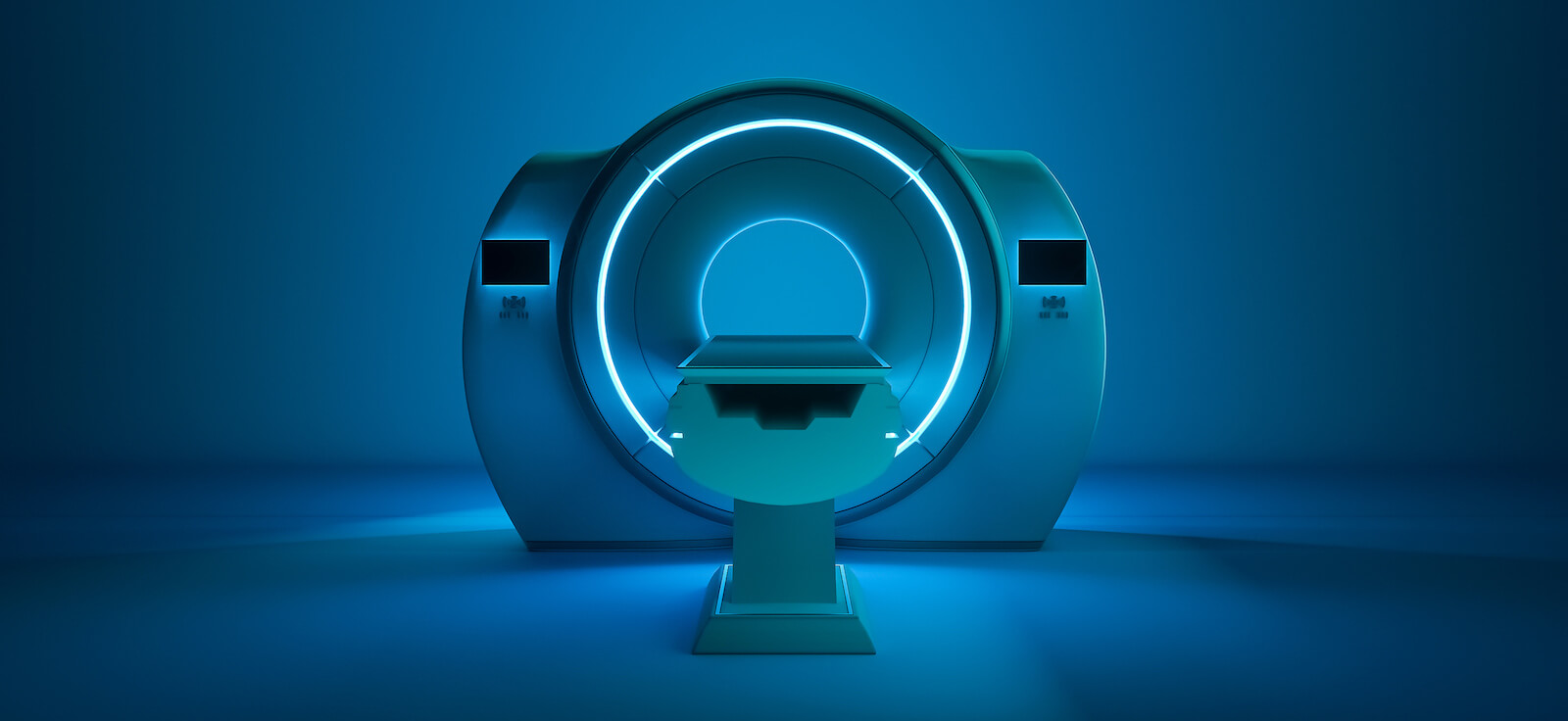MR imaging is one of the most modern diagnostic tests. Using a magnetic field, it provides a more accurate and detailed picture of the structures being examined than any other technology (X-ray, CT). MR scans of the skull provide the most detailed images of the brain chambers and the grey and white matter that make up the brain, the brain nerves and the cerebral circulation.
A skull MRI scan is done for neurological complaints or on the recommendation of a neurologist. The scan may be needed in cases of headache, dizziness, nausea, tinnitus, sensory or motor problems, impaired cognitive function, memory, or possibly speech impairment. Native tests have no adverse health effects and can be used as a screening test or to rule out hereditary conditions.
These symptoms can be caused by a number of conditions and problems, including:
MR scans are also excellent for diagnosis and follow-up of already diagnosed diseases.

MR imaging is one of the most modern diagnostic tests. Using a magnetic field, it provides a more accurate and detailed picture of the structures being examined than any other technology (X-ray, CT). MR scans of the skull provide the most detailed images of the brain chambers and the grey and white matter that make up the brain, the brain nerves and the cerebral circulation.
A skull MRI scan is done for neurological complaints or on the recommendation of a neurologist. The scan may be needed in cases of headache, dizziness, nausea, tinnitus, sensory or motor problems, impaired cognitive function, memory, or possibly speech impairment. Native tests have no adverse health effects and can be used as a screening test or to rule out hereditary conditions.
These symptoms can be caused by a number of conditions and problems, including:
MR scans are also excellent for diagnosis and follow-up of already diagnosed diseases.
Cranial MR scans are performed in the supine position and take 20-30 minutes, during which time complete immobility is required. This position and the scanning device around the head may cause some discomfort. You should also not talk during the examination, as this will cause the head to move and distort the imaging.
Tests can be performed natively or using contrast media.
Within the cranial region, scans can be performed for different diseases or for targeted areas.
We perform examinations in the following regions:
MR of the skull, MRA (MR angiography, examination of non-contrast cerebral blood vessels) is recommended for headache, dizziness, migraine complaints.
The pituitary gland is performed for hormonal problems (microadenoma, macroadenoma) with the administration of contrast medium. The orbit of the eye can be examined for problems of the eye muscles and optic nerves; the facial cranium can be examined for sinuses of the nose for inflammations. In case of tinnitus and rotational vertigo, the cranial area is examined for the ear region, targeting the inner ear.
A special scan can be done for Multiple Sclerosis(MS) using contrast material.
Discomfort may also be caused by the loud sounds emitted by the machine, but earplugs and ear protection can reduce the problem.
The test does not require any special preparation, but fluid intake should be monitored. If a contrast agent is to be used, fasting for 4-6 hours, a preventive renal function laboratory and a 2-day absence of diabetic medication before the test are also necessary. Other information is available in detail on the MR site.
MRI is basically harmless and has no side effects. However, it is contraindicated in certain cases:
Contrast agents also help in the assessment of benign and malignant lesions in skull MRI. It is essential for the definition of lesions that can be imaged natively but not fully resolved. It is used as a primary tool in certain targeted investigations, in the presence or suspicion of sella region, inner ear tumours, multiple sclerosis, white matter abnormalities, tumours.

Our cranial MR and venous angiography (MRV) scans are also performed with contrast material in case of suspected sinus thrombosis, but as this is an acute (life-threatening) condition, we can accept this in special cases, as indicated by our doctors and with an express diagnosis within 2 hours.
Contrast material will only be obtained with a renal function laboratory test within 2 weeks. It is not used in case of impaired renal function (eGFR below 45).
Metformin, a common active ingredient in diabetes drugs, can lead to metabolic problems when used with contrast media. Fortunately, it is not the case that a contrast test cannot be performed in this case. It is only necessary to take the precaution of stopping the drug two days before the test and resuming it two days after the test.
Make an appointment for a skull MRI scan with the excellent specialists at Wáberer Medical Center or call us at +36-1-323-7000 to have your scan performed at our well-equipped clinic in Buda without a long wait.